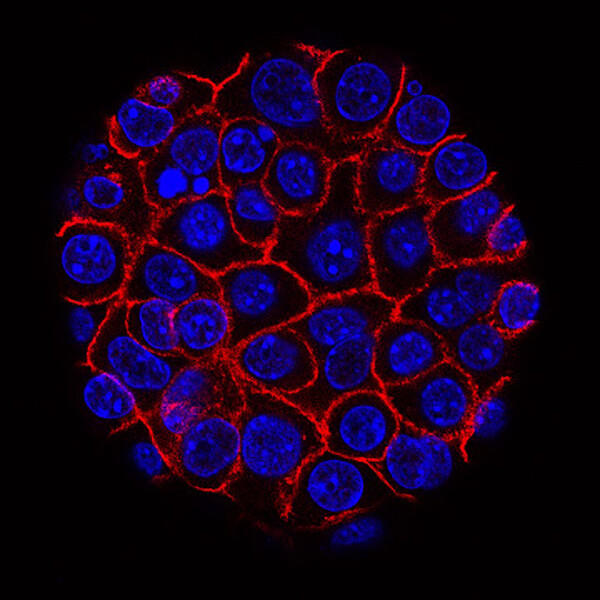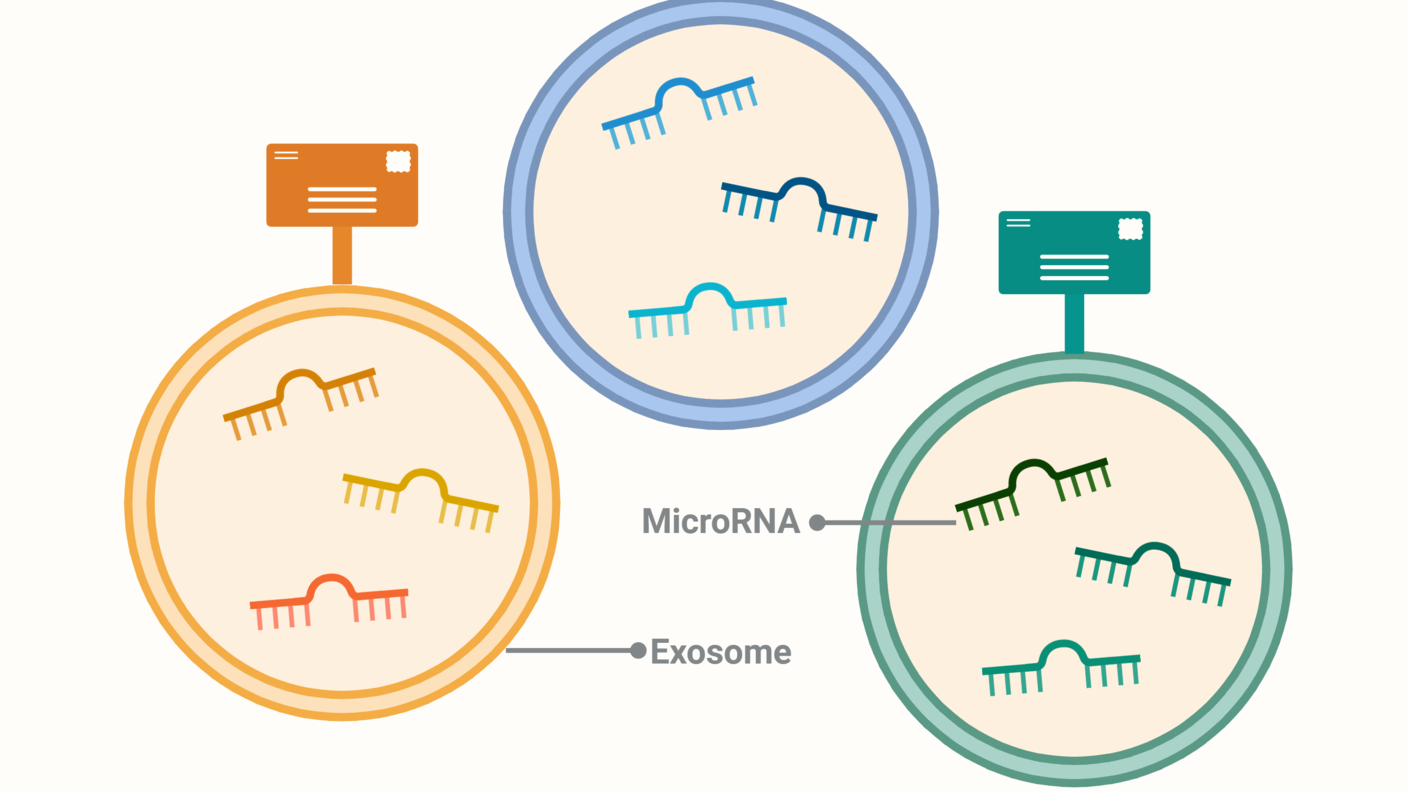New Research in Prevention and Early Detection of Pancreatic Cancer
Currently, no screening tests exist that can catch pancreatic cancer early, before symptoms develop. NCI is now funding several large research projects that are working to develop such an early-detection tool. Researchers are exploring possible ways to prevent and detect early disease in people at high risk.
One known risk factor for developing pancreatic cancer is a new diagnosis of diabetes, sometimes called new-onset diabetes. About 1 in 100 people with new-onset diabetes are diagnosed with pancreatic cancer within 3 years after learning they have diabetes. And 1 in 4 people who get pancreatic cancer had already been diagnosed with diabetes.
The NCI-supported New Onset Diabetes (NOD) Study, which is scheduled to run through 2025, is currently enrolling 10,000 people with new-onset diabetes or hyperglycemia (also known as prediabetes). The NOD researchers hope to develop a blood test that can identify the few individuals with a new diabetes diagnosis who may need further testing for pancreatic cancer.
Scientists are also looking into vaccines that could potentially help prevent pancreatic cancer in people at high risk of the disease. Vaccines that target mutations in the KRAS gene, which are present in most pancreatic cancers, could stimulate the immune system to fight cancer.
Some evidence suggests that regular imaging tests to monitor the pancreas may be useful in early detection of pancreatic cancer in people at high risk.
Other NCI-funded teams, coordinated through the Pancreatic Cancer Detection Consortium (PCDC), are trying to create a blood test that could pick up early pancreatic cancer in the general population. PCDC researchers are also working to improve imaging of the pancreas, by developing methods that may be able to pick up tiny deposits of tumor cells.
New Research in Pancreatic Cancer Treatment
Pancreatic cancer can be hard to treat surgically due to the location of the organ, and because the disease has often spread in the body by the time it is diagnosed.
Standard treatment for pancreatic cancer usually consists of surgery, chemotherapy, radiation, or combinations of each, depending on the stage of the cancer. New treatments for metastatic pancreatic cancer that are being investigated in clinical trials include targeted therapy and immunotherapy. Targeted therapy uses drugs or other substances to target specific molecules that cancer cells need to survive and spread. Immunotherapy uses drugs or other substances to stimulate the immune system to help the body fight cancer.
Patients with pancreatic cancer are generally recommended to have genetic testing for inherited mutations and, if they have advanced or metastatic disease, biomarker testing of their tumor. Both types of testing can help suggest possible treatments and can indicate whether a patient’s family members might have an increased risk for pancreatic cancer or other types of cancer.
Chemotherapy
For people who have pancreatic cancer that can be removed surgically, chemotherapy is often given, sometimes along with radiation, before surgery (called neoadjuvant chemotherapy) or after surgery (adjuvant chemotherapy). Neoadjuvant chemotherapy can help shrink the tumor before it's removed, and adjuvant chemotherapy can kill cancer cells that may remain in the body after surgery.
Researchers are investigating whether chemotherapy regimens that have been found to extend the lives of people with metastatic disease are more effective than standard treatments when used as neoadjuvant treatment for people with operable pancreatic cancer.
Combination chemotherapy is the mainstay of treatment for metastatic pancreatic cancer. A newly approved first-line chemotherapy drug combination is NALIRIFOX, which is similar to the older standard FOLFIRINOX and is more effective than another standard chemotherapy combination, gemcitabine (Gemzar) plus nab-paclitaxel (Abraxane).
Targeted Therapy
Researchers are excited about the possibility that targeted therapies may be effective treatments for pancreatic cancer. These treatments that block several other key targets are in development and testing.
- Targeted therapies that block altered KRAS proteins are a major focus for drug development in pancreatic cancer because more than 90% of pancreatic cancers have KRAS gene mutations.
- Drugs that block mutant forms of KRAS proteins are now being tested.
- Combining KRAS inhibitors with chemotherapy has shown promise in recent trials. Using both may reduce tumor growth and spread because they affect different cellular pathways that can drive pancreatic cancer cell growth.
- PT886 is a new therapy that marks cells with a protein called claudin 18.2 for destruction by the immune system. It was fast-tracked in 2024 by the FDA to be studied in advanced and metastatic cancers, including pancreatic cancers, that express high levels of claudin 18.2.
Cancer Treatment Vaccines
Cancer treatment vaccines help the body’s immune system recognize and destroy cancer cells. Cancer cells contain substances, called tumor-associated antigens, that are not found in normal cells or are found at lower levels. These treatment vaccines can help the immune system learn to recognize and react to these antigens and destroy cancer cells that contain them.
Several cancer treatment vaccines are being tested in early-phase trials involving patients with pancreatic cancer. One recent study showed that using a patient’s own tumor DNA and RNA may allow for personalizing vaccines to treat pancreatic tumors. Another study showed that boosting a special type of immune cell (dendritic cell) in pancreatic tumors may increase immune responses by stimulating cancer-killing T cells.
Immunotherapy
People with pancreatic cancer whose tumors have microsatellite instability (MSI), which make up about 1% to 3% of pancreatic cancers, can be treated with immunotherapies. Researchers are investigating possible ways to improve the effectiveness of immunotherapies in people with pancreatic cancer that does not have MSI. These approaches include:
- Novel immune checkpoint inhibitors and combinations. Using a single immunotherapy drug on its own has not been effective for most people with pancreatic cancer. Therefore, researchers are studying whether combining several immunotherapies that can act on different parts of the immune system is more effective.
- Combinations of immunotherapy drugs with other treatments. These include radiation therapy, stromal modifying agents, and other targeted drugs. Some researchers are even developing targeted therapies that not only block the activity of mutant KRAS but also flag the cell for destruction by the immune system.
- Cell therapies. Researchers are exploring the use of cell-based therapies for pancreatic cancer. These therapies use immune cells such as T cells and natural killer cells that are altered in the lab to kill cancer cells.
Stroma-Modifying Drugs
The stroma is the fibrous tissue around a tumor that does not contain cancer cells. It is mostly made up of connective tissue, blood vessels, lymphatic vessels, and nerves. Some of these components can help to support cancer cells or prevent the immune system from recognizing cancer cells.
Pancreatic cancers have much denser stroma than most tumors. Agents that help break down or remodel this stroma may help more chemotherapy drugs reach cancer cells. Or they may help reduce cancer cell resistance to killing by other agents.
An oncolytic virus is a type of virus that infects and breaks down cancer cells but not normal cells. The VIRAGE trial is studying whether combining chemotherapy with the oncolytic virus VCN-01 is effective in patients with metastatic pancreatic cancer. VCN-01 replicates in tumor cells and helps break down the stroma, potentially allowing treatment to be more effective.
Clinical Trials
Because of the complex nature of pancreatic cancer, many experts believe it’s important for all patients to join a clinical trial, even if they have early-stage disease. NCI funds and oversees both early- and late-phase clinical trials to develop new treatments and improve patient care. Trials are available for pancreatic cancer treatment.
NCI-Supported Research Programs
Many NCI-supported researchers at the National Institutes of Health campus, and across the United States and world, are seeking ways to address pancreatic cancer more effectively. Some research is basic, exploring questions as diverse as the biological underpinnings of cancer and the social factors that affect cancer risk. And some is more clinical, seeking to translate this basic information into improved patient outcomes. The programs listed below are a small sampling of NCI’s research efforts in pancreatic cancer.
- The Pancreatic Cancer Cohort Consortium consists of more than a dozen prospective epidemiologic cohort studies that investigate the causes and natural history of pancreatic cancer. This includes launching a genome-wide association study known as PanScan.
- The Pancreatic Cancer Detection Consortium (PCDC) develops and tests biomarkers to detect early-stage pancreatic cancer and identify individuals at high risk for the disease.
- The Pancreatic Ductal Adenocarcinoma (PDAC) Stromal Reprogramming Consortium (PSRC) is a multidisciplinary community of PDAC researchers that will bridge biological research with preclinical/translational research. The goal is to identify and evaluate elements in the tumor microenvironment that drive PDAC progression and response to therapy.
- The Pancreatic Specialized Programs of Research Excellence (Pancreatic SPOREs) are designed to quickly move basic scientific findings into clinical settings. The Pancreatic SPORE grants support new and diverse approaches to the prevention, early detection, diagnosis, and treatment of pancreatic cancer. Two of NCI's Gastrointestinal (GI) SPOREs also conduct research in pancreatic cancer.
- The RAS Initiative looks to understand mutations in RAS genes to ultimately create effective, new therapies for RAS-related cancers. More than 90% of pancreatic cancers are caused by mutations in the RAS family of genes.
Pancreatic Cancer Research Results
The following are some of our latest news articles on pancreatic cancer research:
- Are New Immune-Based Treatments for Kidney and Pancreatic Cancer on the Horizon?
- Zenocutuzumab Approved to Treat Lung and Pancreatic Cancers with Rare Genetic Change
- Can Chemo Help KRAS Inhibitors Work Better Against Pancreatic Cancer?
- Screening People at High Risk for Pancreatic Cancer May Help Them Live Longer
- Blood Test Accurately Detects Early-Stage Pancreatic Cancer
- No Glucose? Pancreatic Cancer May Have a Ready Energy Alternative
View the full list of Pancreatic Cancer Research Results and Study Updates.

